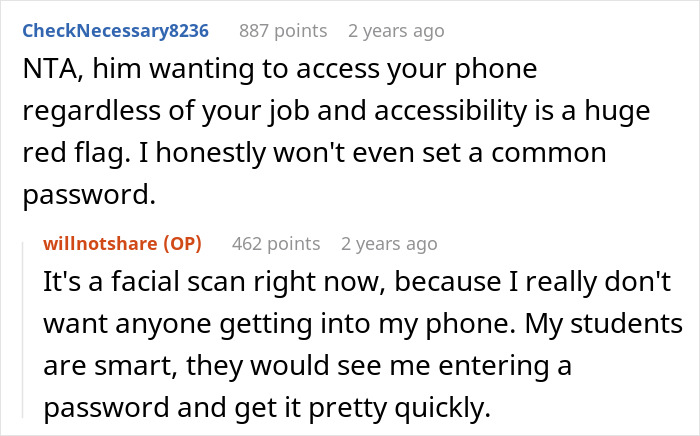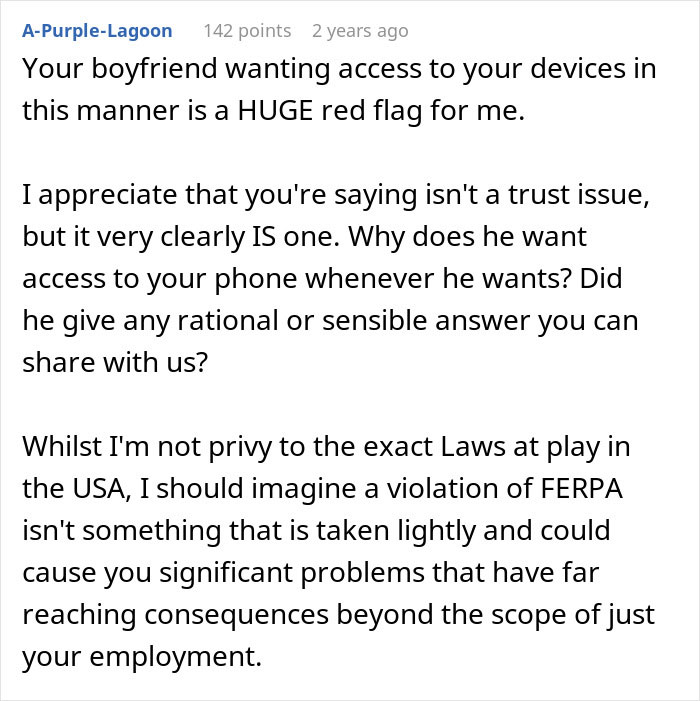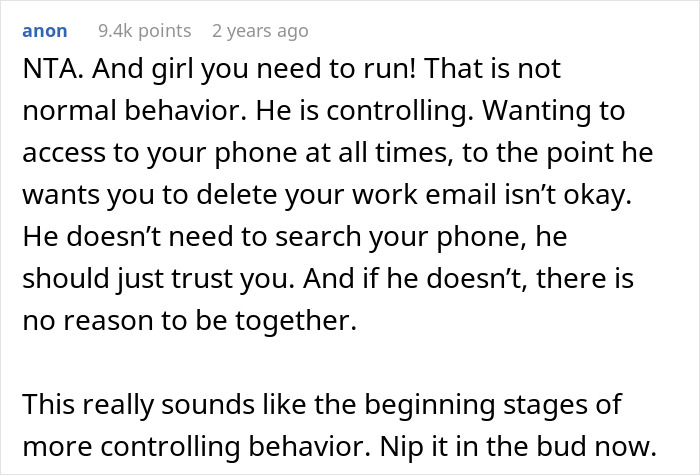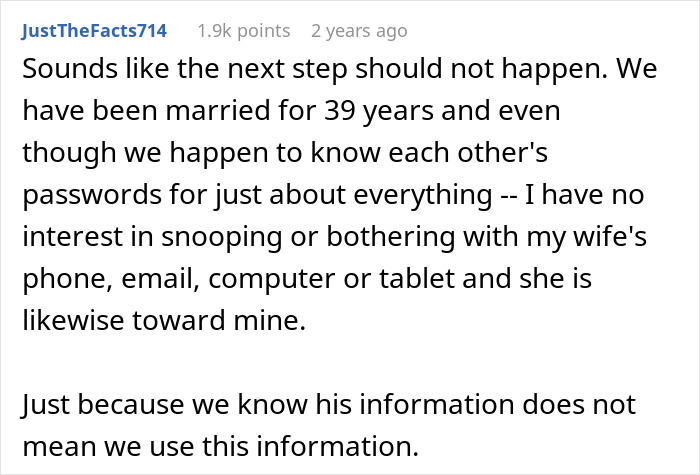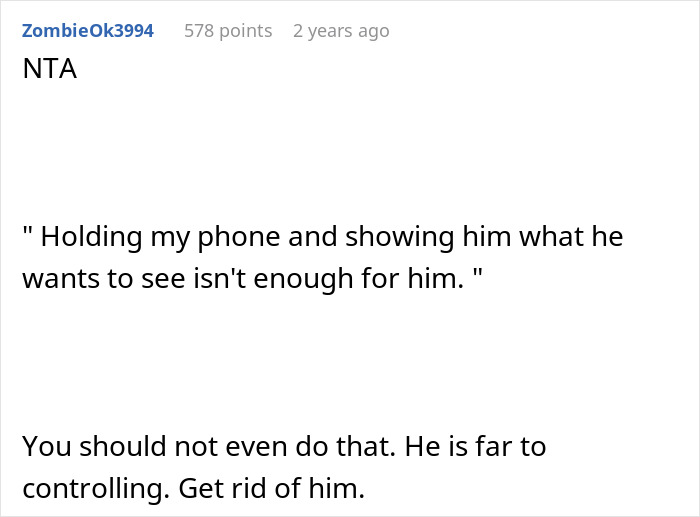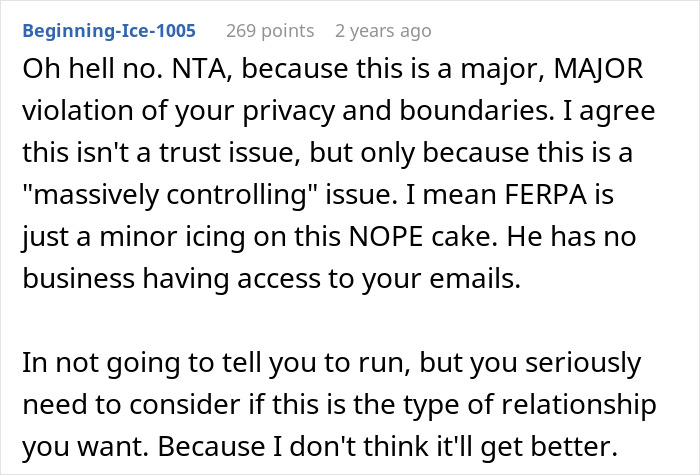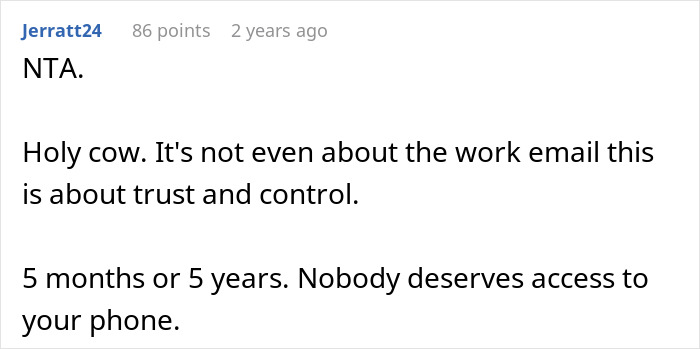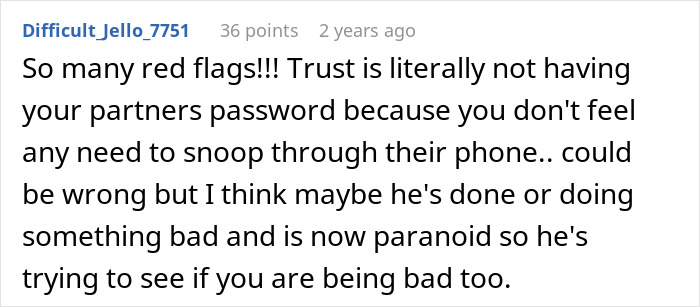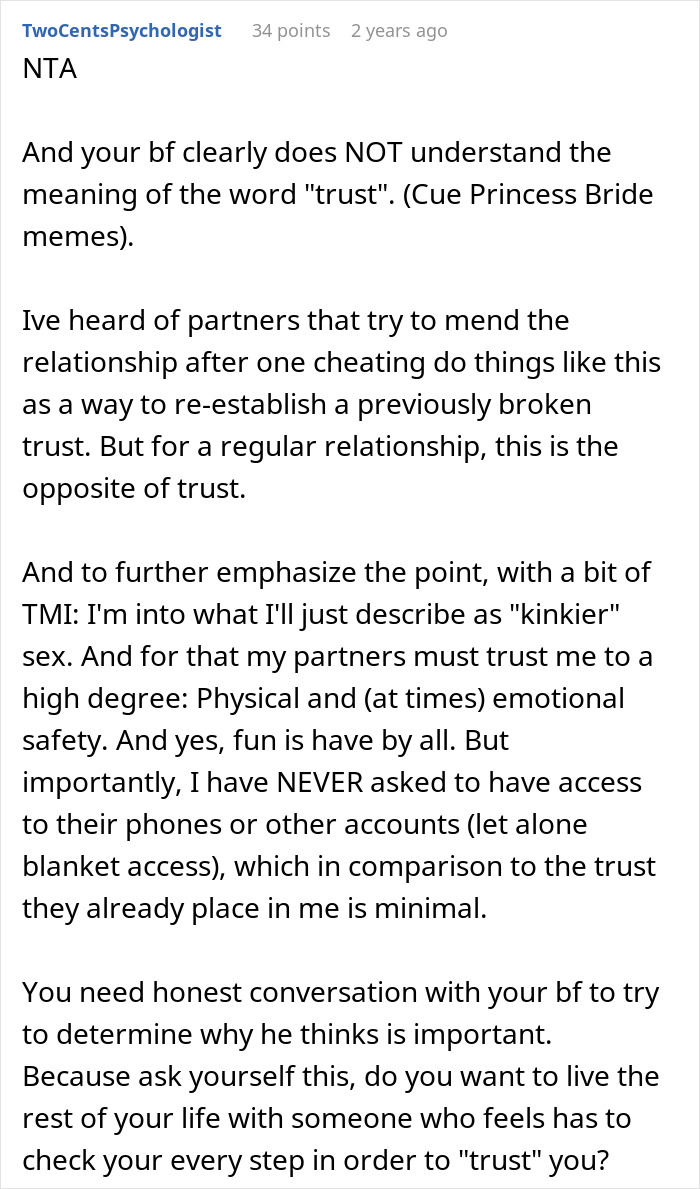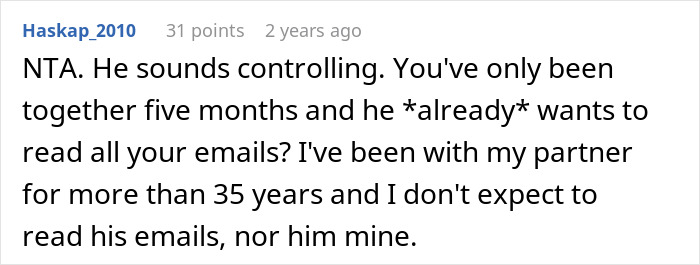Do you think it’s better to share everything with your partner or to maintain some mystery in your relationship? Honesty is certainly necessary for any happy, healthy relationship, but isn’t trust a key component too?
According to one man, it’s important that his girlfriend allows him full access to her devices, even if that means he might accidentally come across some confidential information. Below, you’ll find a story that the girlfriend recently posted on Reddit detailing why she refuses to give her partner full access to her phone, as well as a conversation with Relationship Coach Jane Parker.
This woman’s boyfriend believes it’s necessary that he has access to her phone

Image credits: Andres Ayrton (not the actual photo)
But due to security concerns with her job, she’s refusing to share her password


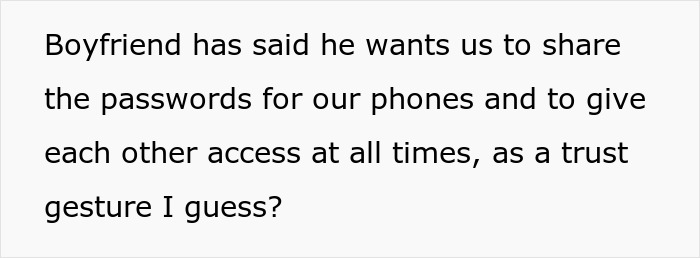
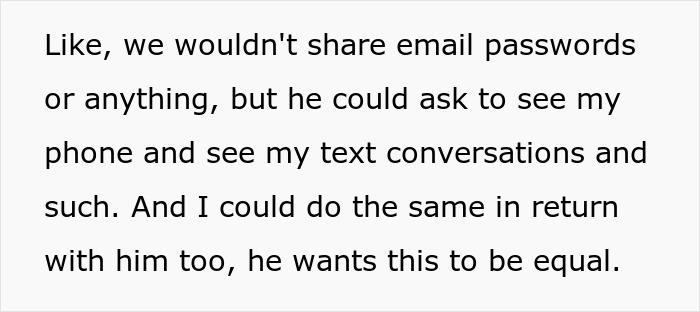
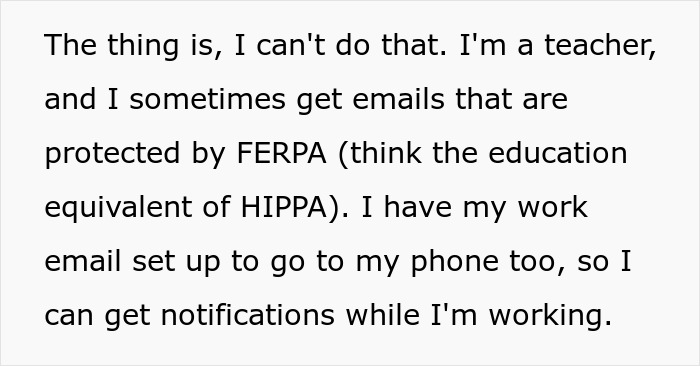
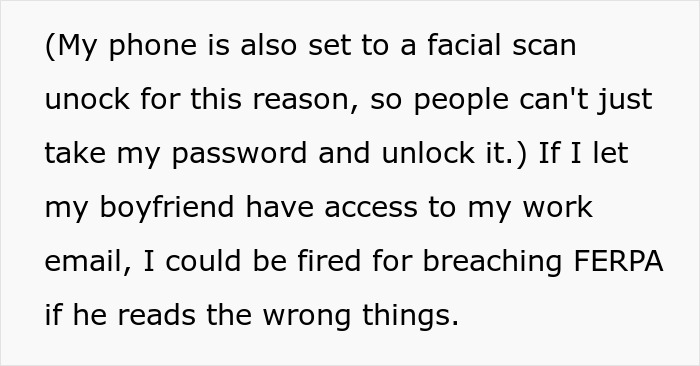
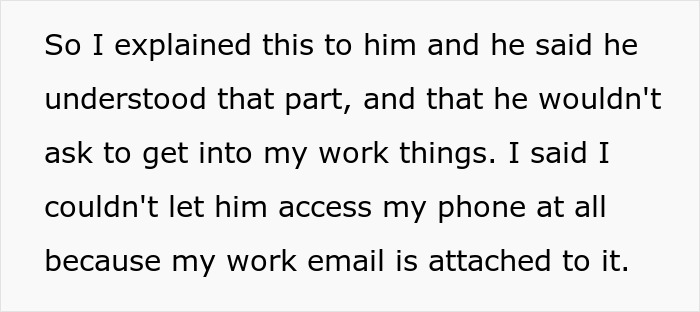
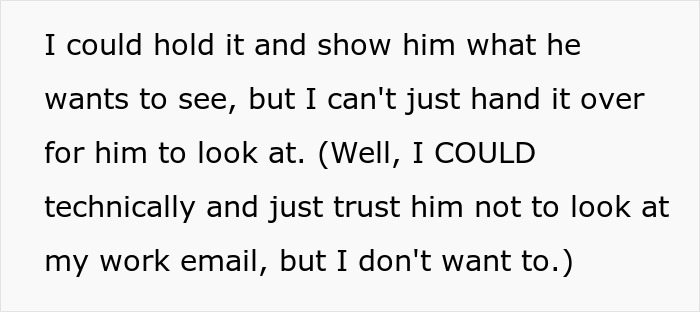

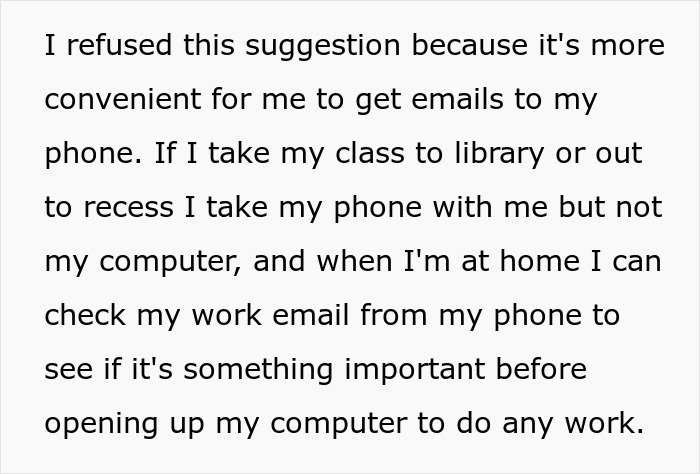
Image credits: Amarande Ansias (not the actual photo)
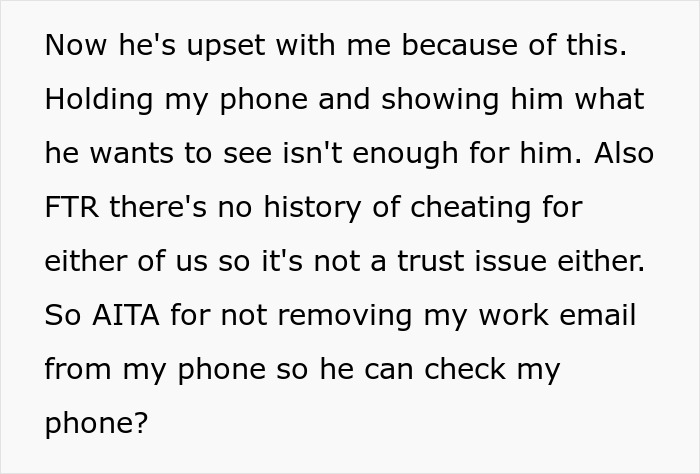
Image source: willnotshare
Later, the teacher explained in depth why she can’t allow her partner to access her email
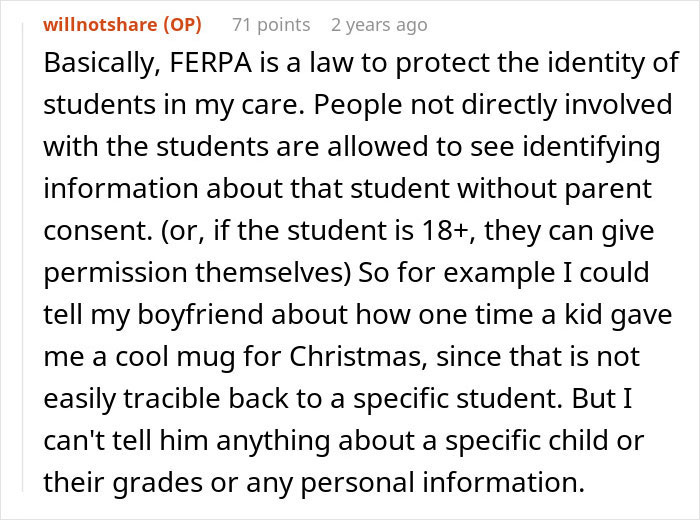
“The healthiness of couples having full access to one another’s phones is contingent on the boundaries, trust, and respect within the relationship”

Image credits: Andrea Piacquadio (not the actual photo)
In this day and age, it’s becoming increasingly more difficult to have any privacy. Even if you’re sitting at home talking to your cat, your phone is listening to what you say, so it can target specific ads to you the next time you start scrolling through Instagram. But privacy is important, in all aspects of our lives, and it shouldn’t be taken away, especially not without consent.
According to TeachPrivacy, it’s important that we don’t have to share everything with others because it limits how much power they can have over us, it provides respect for individuals, it allows us to trust one another, allows for freedom of thought and speech, and means that we don’t have to explain or justify all of our actions. This is true when it comes to the government keeping an eye on your search history or your partner keeping an eye on your Facebook messages.
When it comes to our phones, most of us have nothing to hide, except some embarrassing selfies and some photos from high school. But the idea of giving another person full access to your phone might still make you uncomfortable. To learn more about privacy and phone etiquette between partners, we reached out to Relationship Coach Jane Parker, who was kind enough to share her thoughts on this situation with Bored Panda. First, we wanted to know if it’s a good idea for couples to share everything that’s on their phones.
“As a relationship coach, I believe the healthiness of couples having full access to one another’s phones is contingent on the boundaries, trust, and respect within the relationship,” Jane says. “On one hand, this arrangement can foster transparency and openness, showing that there’s nothing to hide, which can potentially deepen trust. (This applies if there has been infidelity in the past for example.)”
“Even in a committed relationship, everyone has the right to a degree of privacy, and it’s important to respect that”
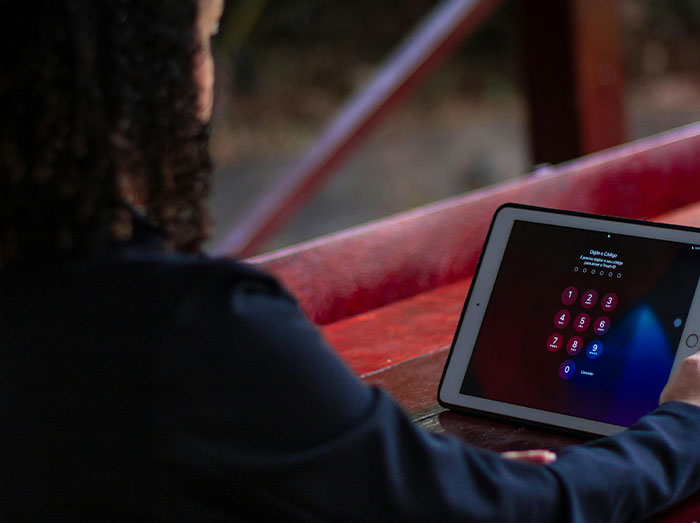
Image credits: Felipe Balduino (not the actual photo)
On the other hand, however, Jane says this can lead to a number of significant cons, including dependance on validation. “It might lead to a reliance on phone checks for reassurance rather than building genuine trust through communication,” the expert shared. “[Or] potential for misinterpretation. Messages or social media interactions can be easily misinterpreted without context, leading to unnecessary conflicts.”
Couples might also cross work boundaries with this arrangement. “For professionals, especially those with confidentiality requirements like the OP, this can create significant complications,” Jane noted. This can also lead to violations of personal space. “Even in a committed relationship, everyone has the right to a degree of privacy, and it’s important to respect that.”
Plus, it can feed insecurity and mistrust if one partner is constantly checking the other’s phone. “It can foster co-dependency and prevent the growth of individuality,” the relationship coach added.
Many readers warned the teacher that her boyfriend might be exhibiting concerning behavior, and Jane agrees. “Pressuring a partner to share phone access can be a sign of controlling behavior,” she told Bored Panda. The expert also says this behavior “often stems from insecurity or past experiences of betrayal, leading one to seek constant reassurance.”
“This pressure indicates a lack of trust, which is foundational for a healthy relationship. Rather than addressing underlying issues, it may mask them temporarily,” Jane noted, adding that this pressure is a boundary violation.
“Pushing for access can show a disregard for personal boundaries, which is critical for mutual respect in a relationship,” the expert says. “My advice to people in similar situations is to have a frank and open discussion about their feelings and concerns. Explain why you value your privacy and assure your partner that it’s not a matter of hiding anything from them. It’s about maintaining a healthy boundary and respect for personal space, which is key to a balanced and healthy relationship.”
“Pushing for access can show a disregard for personal boundaries, which is critical for mutual respect in a relationship”

Image credits: Monstera Production (not the actual photo)
Jane noted that it’s crucial to be firm yet understanding when responding to such demands. “You can suggest alternatives like having specific times where you sit together and go through your phones, if that’s something you’re comfortable with. But it’s essential to stress that complete access at all times is not conducive to a healthy relationship,” she explained.
“Have a candid conversation about why he feels the need to access your phone. Understanding his motivations can help address underlying insecurities or concerns,” the expert recommends. “Clearly explain the importance of professional boundaries and privacy, particularly when it comes to work-related content that is confidential.”
Finally, it’s best to suggest alternative ways to build trust that don’t compromise professional responsibilities or personal privacy. “For example, spending more quality time together, engaging in trust-building activities, or regular open discussions about any concerns,” Jane noted.
When it comes to trust, Jane says it’s not built upon feeling that you have the right to all information about your partner. “Just because we are in a relationship does not mean we have to give up our independence and give free rein to another person in order to alleviate their insecurities,” the expert says. “However, we can build trust by reassuring our partner that we are loyal, committed and telling them how we feel, and then by taking consistent action to show this. To invade the other person’s privacy will only erode their trust in us over time.”
If you do find yourself in a similar situation, the relationship coach recommends reframing the conversation, reassuring your partner of your commitment and loyalty, setting clear boundaries, and if necessary, seeking professional help to address trust issues and improve communication.
We would love to hear your thoughts on this situation in the comments below, pandas. Then, if you’re interested in checking out another Bored Panda piece discussing phone drama in a relationship, look no further than right here!
Readers agreed that the woman had done nothing wrong, and many warned that her boyfriend was starting to show controlling tendencies
